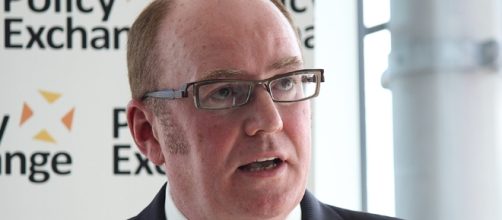A Brexit expert has advised the UK Government to pursue a transitional deal to ease the economic shock of exiting the EU.
Dr. Gerard Lyons, chief economic strategist at Netwealth Investments and co-founder of Economics for Brexit, said most businesses would favour a transitional deal after March 2019, the date Britain is due to leave the EU, to lessen the impact leaving will have on businesses.
He said that he favours a bespoke trade deal with the EU that favours leaving the Customs Union and the Single Market whilst protecting workers' rights and regulations
This news will add further pressure to Brexit Secretary, David Davis, who is beginning talks with the EU's chief negotiator, Michel Barnier, today.
Despite this, a transitional deal is becoming increasingly as the workload of the Department for Leaving the EU piles up with 7,000 outstanding issues ministers need to resolve prior to March 2019.
'UK team must appear united'
Dr. Lyons' warnings come as the latest figures reveal inflation is rising faster than wages, placing a real squeeze on many households.
This is despite a recent YouGov poll showing support for leaving the EU as high as 70 percent.
The Brexit expert said that after the British people delivered their verdict of a hung parliament during June's general election, it is vital the UK team appear united in the face of today's talks.
He referred to former tensions between the Prime Minister and Chancellor Philip Hammond, who appeared on Andrew Marr yesterday to add his support to Mrs May's EU strategy.
Dr. Lyons said a free trade deal is likely because the EU will need UK trade to tackle growing problems like youth unemployment and the Greek debt crisis.
However, James Warren, a forecaster at the National Institute of Economic and Social Research, said growing uncertainty makes investors less willing to plough their money into the British economy.
He called on the Government to display transparency during the Brexit talks.
'Wasting time'
But the EU has accused Mrs May's government of wasting time over negotiations as there are 7,000 outstanding problems to resolve before Britain's exit date.
This forced the Leader of the House of Commons, Andrea Leadsom, to defend the Government's plans on The Sunday Politics yesterday.
She said there was still ample time to agree on a deal.
But UK civil servants working in Brussels have said the Conservatives have wasted 70 days' valuable time since the Prime Minister triggered Article 50 in March.
The election of a minority government has already added further strain on her 'hard' Brexit plans.
A European Parliament source said she has scored a massive own goal after failing to achieve an overall majority on June 8th.
'Extremely optimistic'
An EU official said the UK Government has failed to resolve issues that should have been addressed after Britain voted to leave on June 23rd last year.
Despite this, Mrs Leadsom, who stood against Mrs May during the Conservative Party leadership contest last year, supported her boss and said she is extremely optimistic a free trade deal can be reached by March 2019.
She added that there is a mutual interest right across Europe to negotiate a tariff-free deal between the UK and the EU.
As Brexit talks begin today, Mr. Davis and Mr. Barnier will discuss the rights of UK-based EU citizens and the controversial divorce bill.
There is already considerable tension between both sides as the EU's chief negotiator is likely to push for a £85 billion bill to leave, while many in the UK argue there should be no settlement at all.
Brussels is anxious about Britain's willingness to protect the rights of 3.1 million EU citizens residing in the UK.
If the UK Government fails to protect their rights, Brussels is equally likely to fail to do the same for 1.3 million British expats living in Europe.
Other topics up for discussion include farming, fishing, human rights, air travel and pet passports.
The BBC reported that future relations between both sides will be concluded once the terms of withdrawal have been negotiated.

